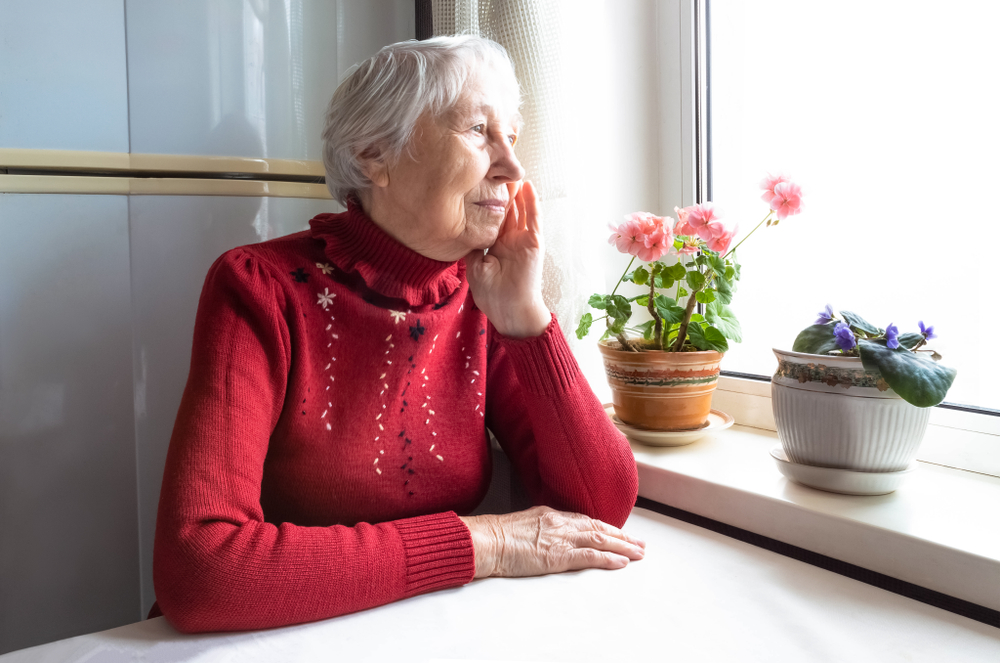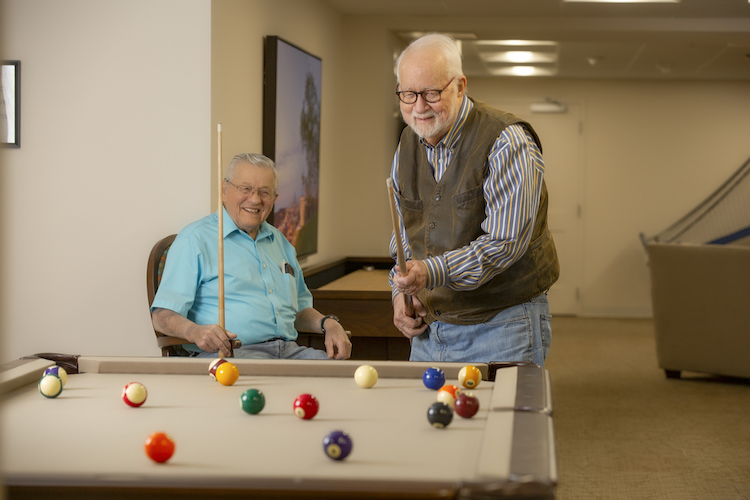We’re learning more each day about the significance of mental health at every age and life stage. In the United States alone, one in five adults lives with a mental illness, and that statistic remains the same when you look specifically at older adults’ mental health patterns. Let’s explore the significance of mental health for seniors, and how we aim to come alongside our residents here at St. Anthony’s.
The Importance of Senior Mental Health
Senior wellness matters, especially with so many people in older generations living in isolation or discomfort from lack of support! At St. Anthony’s, holistic wellness is one of our top priorities. In fact, supporting our residents’ well-being is at the foundation behind everything we do. Wellness is one of our key signatures, but it’s just as important for senior living residents who don’t require the same level or type of care!
If you believe you or a loved one is living with an undiagnosed mental health condition, an important first step is to talk with a doctor or mental health professional to see what type of treatment and care is needed and available. Starting the conversation can feel overwhelming, but your primary care doctor can really help, and can offer some good suggestions to make a big difference.
Mental Health Concerns for Seniors
Although mental health is more of a hot topic amongst millennials and younger generations, adults over 55 years old are facing these challenges as well. Seniors, both in and out of senior living communities, may struggle with various mental health concerns, both diagnosed and not.
Here are some of the common mental health disorders seniors may experience:
1. Depression and Social Isolation
Depression is among the most common mental illnesses that seniors live with. You or your loved one may be suffering from depression if you notice the following symptoms:
- Sadness or apathy that lasts for two weeks or more
- Unexplained aches and pains (or worsening symptoms)
- Noticeable weight loss or loss of appetite, or weight gain
- Lack of motivation or energy (preferring to isolate)
- Sleeping too much or insomnia
- Diminished or decreased interest in activities that used to bring joy
- Withdrawal from loved ones or friends
Seniors may experience feelings of depression or despair at any point in their life, but it can increase significantly when paired with social isolation and a lack of support. In fact, seniors living in a hospital or requiring at-home care are up to 10% more likely to experience depression than seniors living in a community of peers.
At St. Anthony’s, we strive to increase each resident’s quality of life with an extensive list of activities and encouraged companionship. Our team is proud of our family-oriented approach, ensuring all seniors at our campus are surrounded by love and care.
2. Generalized Anxiety Disorder
Often paired with depression since the symptoms are often similar and many people live with both simultaneously, anxiety is another common mental health condition diagnosed in seniors. While depression typically manifests as despair and more subdued nature, Generalized Anxiety Disorder (GAD) usually leads to heightened emotions. Signs you or a loved one may be living with GAD include:
- Frequently feeling nervous, irritable, or “on edge”
- Panic attacks
- Paranoia or feelings of impending doom
- Insomnia or greater difficulty sleeping
- Rapid breathing, lightheadedness, increased heart rate, or shaking
- Feeling weak and tired, especially following a bout of extreme emotion
- Gastrointestinal problems
Older adults often experience GAD following an illness or injury, as they worry about the possibility of getting sick or injured again. It may also be related to past trauma or difficulties remembering with the onset of a memory loss illness.
Mood and Memory Disorders
While depression and anxiety are common in the general population, seniors are significantly more likely to struggle with some form of cognitive impairment as they age. These impairments can be memory loss illnesses or mood disorders that are also often connected to memory loss. Some of the most common cognitive illnesses include:
- Alzheimer’s disease
- Dementia
- Parkinson’s disease
- Delirium (often due to illness)
- Bipolar, unipolar, or other mood disorders
Your loved one having more frequent mood swings or occasional forgetfulness doesn’t necessarily mean they have one of the above disorders. Aging and adjusting to changes later in life can be stressful, and it’s normal to feel overwhelmed and irritable as a result. However, it may be worth talking to a doctor if you or your loved one has one or more symptoms of a memory loss illness or mood disorder.
Mental Health and Senior Living
Regardless of whether you or your loved one have a diagnosed mental illness or are simply feeling lonely and isolated, senior living can improve your quality of life! At St. Anthony’s, we make it a point to provide residents with the most loving, supportive care possible to create a community built on wellness and a family environment.
1. Intentional Community
There’s a reason we call St. Anthony’s a senior living community rather than using stuffy words like “facility.” We’re not some bare-bones apartment building with a few doctors around if needed. We’re not a nursing home or a sterile extended-care hospital. Our staff and residents all agree that the St. Anthony’s community is really a family. We love each other deeply, and the amenities and exciting activities are just the icing on the cake!
In addition to our wide variety of activities, our St. Anthony’s community also includes opportunities to connect spiritually. Studies show that older adults with religious and spiritual practices had a lower prevalence of anxiety and depressive symptoms, as well as greater life satisfaction and psychological well-being, better social relations, and more definite meaning in life.
2. Access to the Right Care and Support
Our goal is never to limit possibilities for seniors in our care. On the contrary, we want every resident to continue enjoying the autonomy and independence they’ve always loved as much as possible for them!
When it’s time for a senior to move into assisted living or memory care at St. Anthony’s, we take the time to assess their care needs and work closely with them and their family to come up with a customized plan that works for them. As time goes on, we will continually communicate with each resident to see if they require more or less assistance and adjust their care accordingly.
3. Smooth Transitions
Transitions are never easy, but at St. Anthony’s we make them as smooth as possible! This includes supporting and encouraging family members as they help their loved one move into senior living, guiding our residents as they shift from independent living to assisted living or memory care, and surrounding each resident with all the love and support they need to feel right at home with us.
We Are Honored to Care for Kansas City Seniors
Keeping our resident’s mental health top of mind is just scratching the surface of how we put our hearts and souls into caring for our residents every day. We mean it when we say they are our family, and caring for their mental well-being is just as important to us as caring for their physical and spiritual health.
Ready to explore St. Anthony’s? Contact us to schedule a tour!




